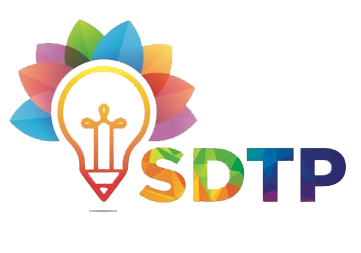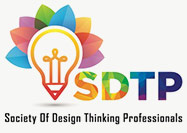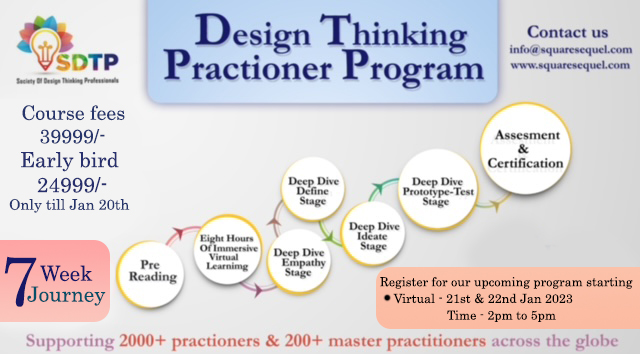Gradually understanding the roadmap of a manager, Jahnvi successfully climbed a few steps on a ladder. She knew it was a long journey to become an efficient leader and had to cover it steadily, acquiring in-depth managerial knowledge and skills. Jahnvi has been moving mountains to be the leader her team deserves and ameliorated her understanding of the depths of managerial acumen.
On her journey, she has discovered the requisites of becoming a first-time manager, her values, locus of control, setting goals, and achieving them, her learnings from The Strangest Secret, how to handle the missed goals, an overview of feedback, the gateway to discovering the blind spot, frameworks of feedback, the concepts of feedforward, the overview of the interpersonal skills, and the techniques to enhance interpersonal skills.
Moving forth on her apprising journey, team management piqued Jahnvi’s interest and she started steering her boat in that direction. To her surprise, she found a study to put her research in a picture. A recent study showed that managers who are aware of their team members’ personality types are better able to motivate and inspire their teams, leading to increased productivity and team success. The study, conducted by researchers at the University of California, assessed the success of teams led by managers with varying levels of knowledge of personality types.
Teams with leaders who had a greater understanding of personality types achieved significantly higher performance. The study found that teams with managers who had a better understanding of the four personality types — Driver, Expressive, Amiable, and Analytical — were more successful and achieved significantly higher performance. These managers were able to recognize the strengths and weaknesses of each personality type and use that knowledge to create strong, effective teams. The results of the study further highlighted the importance of understanding personality types in order to effectively manage a team.
Jahnvi knows that she has to gather everything about the personality types and how she can leverage them to boost the effectiveness of her team.
Team Management From The Lens Of Human Emotions

Team Management can be a daunting task for first-time managers as it means moving forward with your team to attain the goals and navigate the complex human emotions to manage people in the best possible manner. Emotions can have a significant impact on team performance and productivity. For instance, if a team member is feeling overwhelmed, it can affect their ability to focus and complete their work on time. Similarly, if a team member is feeling undervalued, they may not be motivated to give their best effort.
As a manager, Jahnvi understood that it was her responsibility to create a safe and supportive environment where her team feels comfortable sharing their emotions. It’s important to encourage open communication and actively listen to her team members. Acknowledging and understanding their emotions builds trust and strengthens her relationship with her team.
How Does Personality Types Impact Team Effectiveness?

When building a team to undertake a new project, it’s normal to consider the skill set required, such as sales, IT, marketing, and team leadership. However, Harvard Business Review (HBR) suggests that establishing the correct mix of personalities is also vital. This does not happen by itself. Even a team made up solely of IT specialists may have disparate personalities and points of view.
According to HBR, good teams include a mix of personality types:
Driver

This personality type focuses on end results and making progress towards the attainment of the goals. They are confident and assertive, which allows them to take charge of situations and make decisions quickly. They tend to be natural leaders who can motivate and push their fellow members to work towards achieving their objectives.
However, drivers are not good listeners and are usually impatient. For instance, if something is not going as per their plans or others aren’t performing in the motion they would like, they become frustrated easily. This instance gives rise to a conflict situation within the team, if not managed properly.
Despite these challenges, drivers are considered to be highly effective in getting things done, as they’re more prompt in taking decisions and risks, which sometimes are crucial in achieving success in this competitive environment. Moreover, their ability to stay focused and achieve the end goal can inspire others to work harder and more efficiently.
In simpler terms, people having driver personalities are characterized as goal-oriented, confident, and assertive. While they may struggle with listening to others and practicing patience, they can be highly effective in driving a team toward success.
Analytical

This category gives keen attention to details, emphasizes facts and data, and is highly logical, which makes them great problem-solvers. Being data enthusiasts, they’re skilled in breaking down complex problems into smaller, more manageable parts, which enables them to stay organized. Because of their focus on detail and data, analytical individuals are great at identifying potential obstacles or risks and finding potential obstacles. However, analytical individuals play safe while making decisions. They prefer to accumulate a bundle of information before making a decision. Until they’re confident in their analysis, they hesitate to take quick decisions or risks. This makes them valuable members of a team, particularly in fields like engineering, finance, or data analysis.
People having analytical personalities face difficulty in communication and building interpersonal relationships. Because they tend to be very focused on facts and data, they may overlook the emotional or personal aspects of a situation. They may also struggle to explain their reasoning to others who may not have the same level of technical expertise or understanding of the subject matter.
It’s important for Analytical individuals to work on developing strong communication skills and building strong relationships with their team members in order to be effective in a team setting.
Amiable

Members having an amiable personality type are friendly in nature and focus on building relationships which enables them to socialize easily. They tend to be warm, empathetic, approachable, and most importantly, they’re good at putting others at ease. Amiable individuals are also highly empathetic and are often able to pick up on other’s emotions and respond in a supportive way. This makes an amiable person perform well in creating a positive team environment.
However, this personality type usually faces difficulty in setting boundaries, which sometimes puts them into tricky situations. For instance, to maintain positive relationships they may not speak up when they disagree with others. Therefore, it’s important for Amiable individuals to work on developing their assertiveness skills and setting clear boundaries in order to be effective in a team setting.
Despite these challenges, Amiable individuals bring many valuable skills and strengths to a team. Their focus on relationships and empathy can help create a supportive and positive team environment, and their conflict-resolution skills can be invaluable in navigating disagreements and finding solutions that work for everyone.
Expressive

This personality type is highly creative, enthusiastic, charismatic, and loves being the center of the attention. Expressive individuals are highly skilled at thinking outside the box and generating new ideas. They also possess the knack for inspiring others and owing to their creativity and enthusiasm, they build excitement around a project.
Members having expressive personalities possess excellent communication skills, which enables them to present their ideas in a compelling way and get onboard others with their ideas. Being focused on the bigger picture, they sometimes face difficulty in giving attention to details that are necessary for successful implementation.
It’s important for Expressive individuals to work on developing their organizational and time-management skills in order to be effective in a team setting. They may also benefit from working with individuals who are highly detail-oriented and can help ensure that tasks are completed accurately and thoroughly.
Despite these challenges, expressive individuals bring many valuable skills and strengths to a team. Their focus on creativity and enthusiasm can help generate new and innovative ideas, and their ability to inspire and engage others can be invaluable in building a strong and motivated team.
The combination of personality types has an impact on team effectiveness. A team that lacks relationship builders will struggle to bond. A team with too many of that personality type may put too much emphasis on everyone getting along; too much harmony might lead to no one pointing out faulty ideas or unachievable deadlines.
Understanding these different personality types can help first-time managers tailor their communication and management style to best suit each team member’s strengths and weaknesses. It can also help to create a more balanced and diverse team that can approach problems from multiple perspectives.
Now that Jahnvi understood the various personality types, it was easier for her to put them in the categories accordingly. While doing her research, she chanced upon the “Theory of Human Emotions,” where she learned about personality types in detail.
“People are different, they are not difficult.”
She understood the fact that each individual is an independent person with unique thoughts, mannerisms, behavior, style, and values. She finds herself in a better position to appreciate the oddities, peculiarities, traits, and behavior that otherwise she would have seen as an aberration. She now knows how to deal with different people in her team, pay attention, and be thoughtful to each one of them by taking up with their individuality.
This made her remember a scene from the old Golmal movie where Utpal Dutt interviews Amol Palekar and Amol actually said everything that Utpal Dutt wanted to hear from an ideal candidate for the job. It made her comprehend that she has to talk to her team members in a way that is understandable to them, and she took an oath at that moment to teach her team members the theory of human emotions and how to leverage it to work in a collaborative way.
She found the theory of human emotions to be such a simple yet profound thing, and she can use it as a people-reading guide and help her team to foster an environment of collaboration, understanding, and respect. With these skills, her team can achieve great success and make a powerful impact. Now that she has unveiled the benefits of understanding personality types, she intends to delve deeper into the techniques and strategies to manage a team in a high-powered way.
https://smallbusiness.chron.com/different-personalities-affect-teamwork-11607.html
https://actspot.com/2020/03/17/people-are-not-difficult-they-are-different/
https://bigfin.com/blog/communicating-with-others-4-personality-types/
https://www.preemploymentassessments.com/wp-content/uploads/2020/03/pic14.jpg
Written By: Jimmy Jain
Edited By: Afreen Fatima
Society of Design Thinking Professionals









